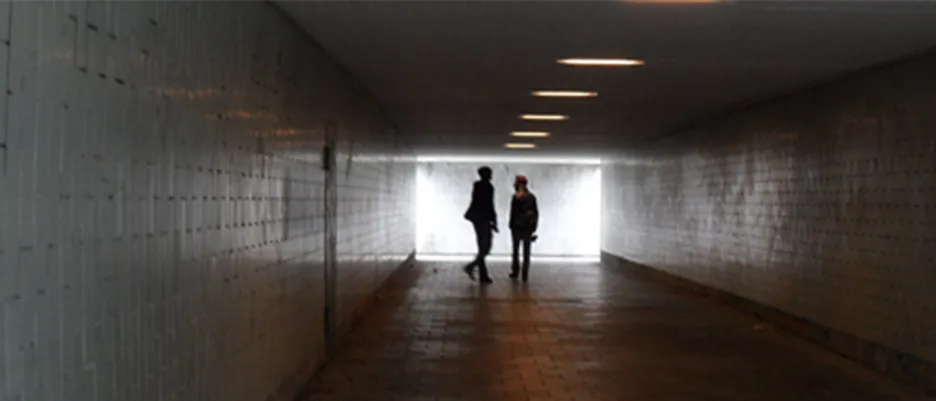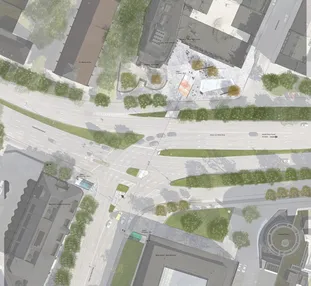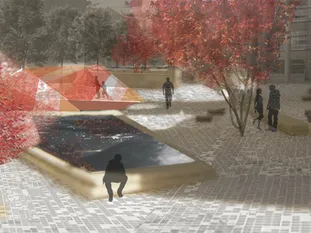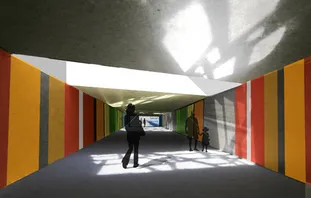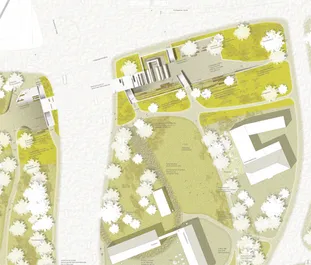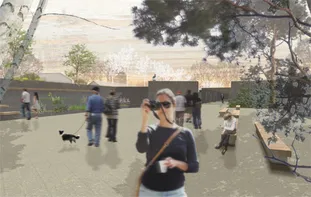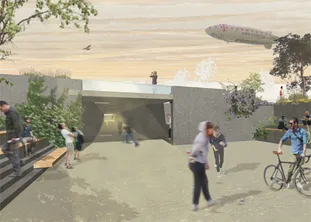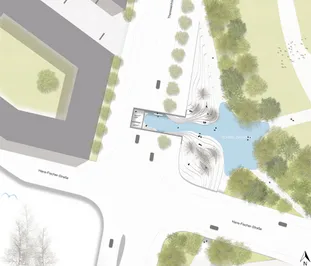Munich Tubes
Semester Projekt M.A. Landscape Architecture, Summer Semester 2012
Topic
In Munich, they are widespread throughout the city and are often perceived as "non-places." Tubes, underpasses, and passages typically appear run-down and morbid after a few decades, regardless of how clean, washable, tiled, or post-modernly glazed they may be. Once they no longer keep up with the changing zeitgeist, they transform into unpleasant thoroughfares. The stigma of the "scary place" clings to them. Besides their design issues, they often pose social problems. They provide weather-protected places for some marginalized groups in society. Others view them more as "non-places" and quickly move past them. The "tubes" often appear musty, dark, and threatening. Many cities recognize a strong need for action in these areas, especially to improve conditions for pedestrians and cyclists.
These structures, exclusively developed by engineers, are often neglected in terms of design during planning. It is not uncommon for attempts to be made later on to enhance these places with "public art." Improvements can sometimes be challenging to implement due to limited space, making renovation measures necessary.
Aim
Is it possible to develop a conceptual planning approach that interprets these structures differently? The goal is to, in conjunction with the urban planning parameters of the surroundings, develop new bold solutions that respond to the uniqueness of the place and context and address the problems outlined above while improving them in the long term.
Task
In order to obtain an understanding of the current situation, a substantial number of the tubes, underpasses, and passages in the Munich city area will undergo initial analysis. Employing a unique assessment methodology, all of these structures will be assessed against various parameters and consolidated into an "Atlas." This pivotal initial phase will be developed through collaborative efforts in several workshops. The "Munich Tubes Atlas" will serve as the foundation for the semester project, which will be individually developed with a self-selected Munich example. The project will be complemented by an introductory excursion and a workshop focusing on the theme of "perception."
Supervision
Prof. Regine Keller, Dipl.-Ing. Felix Metzler, Dipl.-Ing. Michel Hinnenthal, Dipl.-Ing. Susann Ahn, Dipl.-Ing. Thomas Hauck
